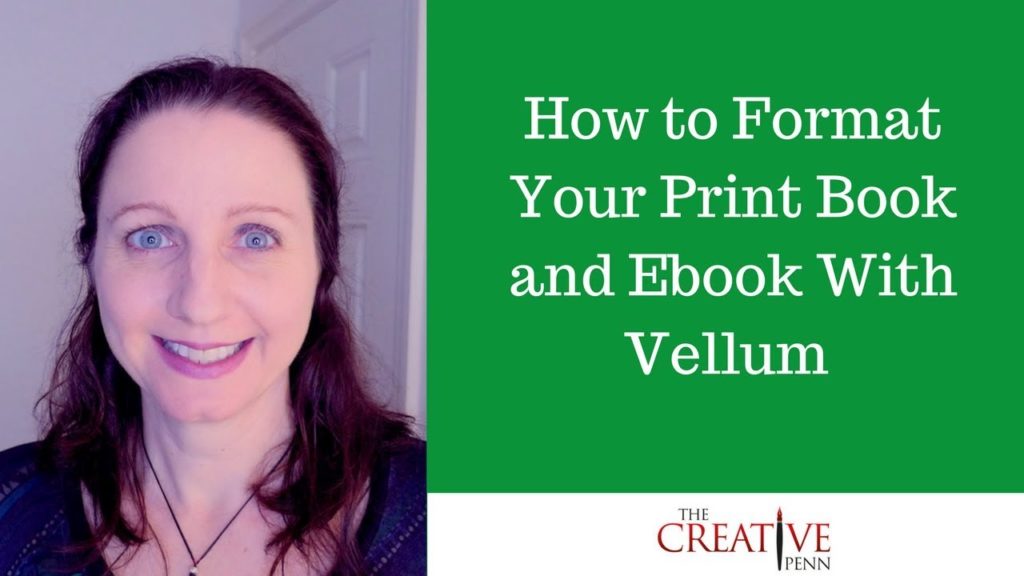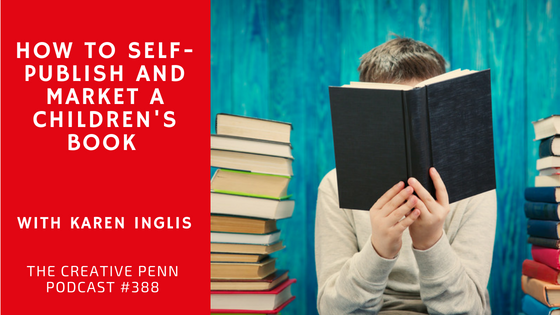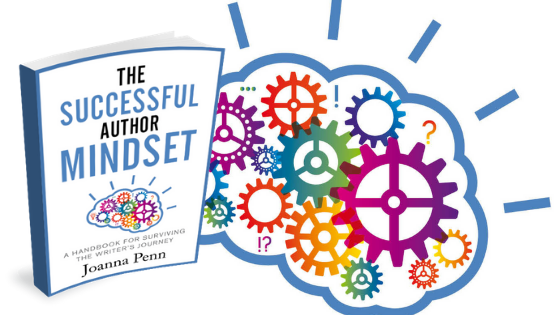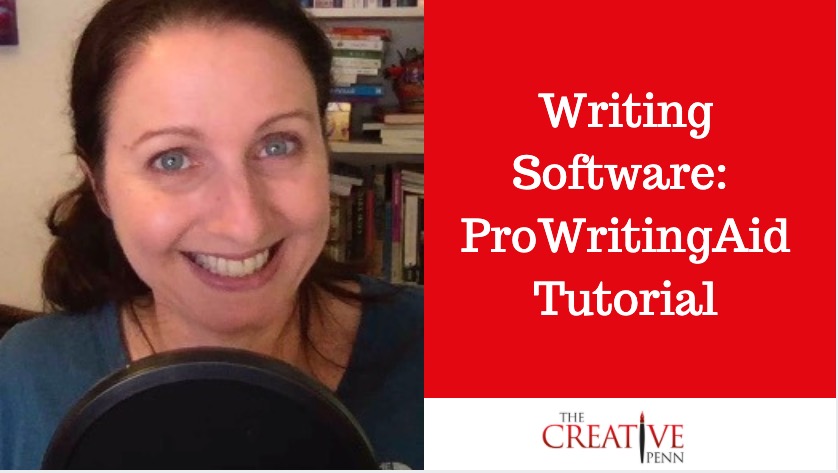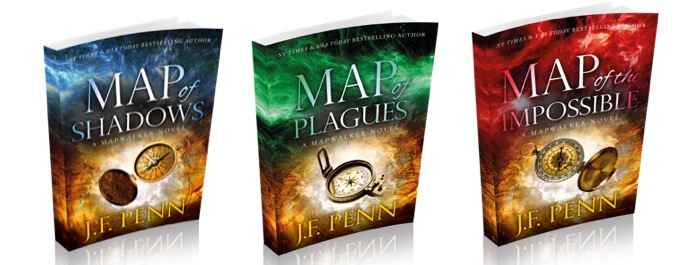In this Facebook Live recording, I answer questions about writing, self-publishing, book marketing, author mindset, and more.
You can watch the video below or here on YouTube.
In this video, you can access the various questions with the timestamps below, or read the transcript below.
- 1:10 Should you reference the pandemic in your book?
- 3:07 Would you recommend a new author concentrate on one piece of work? Or, if you have multiple projects, would you run them in parallel?
- 5:28 What would be your number one tip for new authors starting a self-publishing career, or launching a new pen name in 2020?
- 8:08 As a new writer with only two flash fiction collections out, would you focus on building a mailing list or writing the next book?
- 9:45 I have five short stories of 10,000 words each. What is the easiest method for creating a box set?
- 12:54 Have you ever had anyone on your podcast from IngramSpark? It’d be great to learn some more on pricing and how to set prices, which I find slightly confusing.
- 15:04 Is it wise to write in more than one genre or sub-genre?
- 17:20 The best software for writing a textbook
- 18:53 Where Joanna wants to travel to first when pandemic restrictions are lifted
- 21:18 I’m thinking of self-publishing a children’s picture book and chapter book. Would you upload to IngramSpark first or Amazon first?
- 22:58 How do you keep yourself motivated to work on a book when it’s difficult, or you’re finding it a slog?
- 25:57 Have you ever experimented with book clubs?
- 27:20 There are so many competing voices in the marketing space. Who do you listen to? [Join Mark Dawson and me for a free webinar on 6 Secrets to Amazon Ads Success – 11 June, 2020. Click here to sign up for your free place.]
- 31:21 I’m wrestling with Scrivener. Have you succeeded in dragging and dropping into the research folder?
- 32:19 Are you speaking at any more online conferences?
- 32:46 Using ProWritingAid for a first pass at a book’s edits
- 34:52 Keeping a series interesting
- 37:35 How to know when a book is finished
I’ll be doing more of these live Q&A sessions, so join me on Facebook.com/thecreativepenn so you get notification of the next one. You can also sign up for my email list and I’ll notify you of the next one, plus you get my free Author Blueprint.
Transcript of the QA Facebook Live
Hello, Creatives. I’m Joanna Penn, from TheCreativePenn.com. And today, I’m doing a Facebook Live, answering your questions on writing, publishing, book marketing, making a living with your writing, whatever would be useful to you.
If you are joining me live, you can type a question in and I will answer it in this session. And if I can’t get to them all, I will try and answer in the comments. And hopefully, I’ll be doing more of these.
Now, I haven’t done a Facebook Live for probably years, mainly because I’ve been focusing on audio. I love audio, but because we are in the situation we’re in with the pandemic, I’ve decided I need to connect more and try and be around more in-person. And so, I’m trying out doing these Facebook Lives, and I’m going to try and do more videos as well.
So, please enter your questions, and while that’s starting to happen, I am going to start with one that I’ve been sent by a number of people recently. So, I hope this is going to be useful.
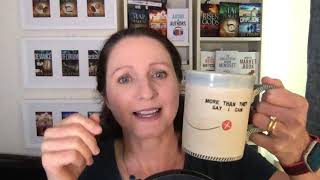
Should you reference the pandemic in your book?
If you’re writing a book right now, and we’re assuming that we’re talking about a novel. Obviously, if you’re writing a nonfiction book about health or about society, or whatever you’re writing, then you may reference it for other reasons. But if you’re writing a novel set in the present time, should you reference it?
I’ve been thinking about this, because my next book, Tree of Life, is an ARKANE thriller. It is set in the present day, but I don’t want to have my character, Morgan Sierra, who’s a special agent, running around with a mask on and talk about it that way. So, I’m not going to be including it.
Obviously, if your plot does involve something to do with the pandemic, then fair enough, but there’s a couple of reasons. Firstly, when I write a novel, I don’t reference lots of things. I don’t mention politics. I don’t mention who’s the president or the prime minister of the UK, or anything like that. I don’t mention celebrities. I don’t mention lots of things that happen in the world.
I think that unless it’s relevant, then you don’t necessarily need to mention it. The other thing is that, I don’t know about you, but I’m feeling like we’re getting enough of it, and I don’t want to put it in my creative side right now. However, the opposite angle is that you feel that this is giving you ideas for plot, and you want to write something, so, go ahead.
Basically, it is up to you. A lot of people have been asking me my opinion, and, as ever, these are just my opinions. I personally am choosing not to have my characters wear masks, and I’m not going to reference lockdown in my next book. That may change over time, but I wanted to give you that.
Thanks for those of you who are here, and Scott says, Thanks, Joanna.
Would you recommend a new author concentrate on one piece of work? Or, if you have multiple projects, would you run them in parallel?
This is a great question. And what I would say is, it’s really going to depend on your confidence. I personally will never work on two fiction projects at the same time.
For Map of the Impossible, I’ll just show you since we’re on video. This is the second printout in my folder. And while I’m finishing that project, I won’t start another one. Now, of course, I’m thinking of ideas.
I’ve got about 15 different folders on my computer where I’m keeping ideas and lots of notes and things, but I won’t start working on another book until that one is out of my head and to my editor. The reason why is that many people, start lots of projects, and people generally don’t finish projects.
There are some ridiculous statistics about 80% of people who want to write a book, but most people never do. And I think a lot of people start a book or start a project, but they never necessarily finish them.
A good example would be some of my screenplays. I’ve written a few screenplays, but I haven’t finished them, because I haven’t taken it through to its final point. And I think if you try it and work on multiple projects, you may struggle because your brain is going all the which way.
I personally think you have to use finishing energy. And finishing energy is that last bit of the project where you take your draft or whatever you’re doing to publication, or if you’re submitting to a traditional publisher, submitting there, so you finish that project, and then you can work on another.
Especially, you said you’re a new author, I think a lot of new authors would find it difficult to juggle. I’m not a new author, and I still find it difficult to juggle. So, yes, some people do it, but personally, I think finishing is really important.
What would be your number one tip for new authors starting a self-publishing career, or launching a new pen name in 2020?
Okay. So, a new author starting a self-publishing career. Look, I know this is really unpopular advice, and no one wants to hear it, but if you’re launching a career, then it’s not with one book.
I have a nice backdrop here of some of my many books. And the reality is that you cannot make a career from one book unless it is a nonfiction book where you are basing a speaking career, you’re doing courses, you’re doing all the other things around a nonfiction book, basically.
So, I presume, Kate, you’re talking about fiction. You’re talking about pen names, so realistically, the advice right now from many of the people doing very well is to write several books in a series and then to put money into building your email list and building sales once you’ve got a few books.
But, I totally understand about lack of patience. I have never had the patience to hold on to books. I always just write them and put them out there. So, you can try and build a career fast, or you can build a career like me, slowly, and over time.
That perhaps is the difference between the short-term focus and the long term. I love the fact that you have used the word career, because that is definitely what I always wanted, was a career. And to me, a career is a long-term thing. It’s not a short-term thing.
So it obviously takes time to build a career. Coming back to when I was an IT consultant or any career, if you’re a teacher, whatever you are, in the first year of a job, how much are you worth? Do people give you the good pieces of work? Do you get any respect? Do you get paid a lot? No, you don’t.
When do you start getting to a decent point in any career? It’s at least five years in. And then at 10 years in, you know what you’re doing, and you have a reputation, and you’ve learned along the way.
This is a long answer, but maybe find a model of someone who has done what you want to do in the timeframe you want to do it, and model them.
As a new writer with only two flash fiction collections out, would you focus on building a mailing list or writing the next book?
Great question. What have you’ve got, you’ve got two flash fiction collections. I have to ask, what is the next book? Because if your book is another flash fiction collection, then that’s something that you can do at the same time as building a mailing list.
And in fact, in general, you would focus on building a mailing list at the same time as doing anything else. So, every day, I’m building my email list. Every day, I’m working on the next book. So, I would say your bigger question, Andy, is do you want to write only flash fiction, or do you want to now expand into short stories? What else do you want to do? And that will help you decide on that question.
I’m just going to get my cup of tea, which I have here. Incidentally, I’m a creature of habit in many ways. This cup, which says, ‘More than they say I can,’ I got that as part of a Seth Godin thing years ago, and I use it for tea every single day. It is my teacup. It is peppermint tea, in case you were interested.
Scott says, ‘Good answer. I’ll concentrate on the most advanced.’ And Kate says, ‘Thank you. Appreciate it.’
I have five short stories of 10,000 words each. What is the easiest method for creating a box set?
Great question, easy answer, Vellum. Vellum software has basically changed the game. With any kind of formatting, whether it’s a box set or just a normal book, ebook, or print book, Vellum is magic. When it came on the scene, must have been four or five years ago now, it just changed everything.
When Vellum came on the scene a few years back, we all were like, ‘Ooh, what’s this?’ And then as soon as we all started using it, it was everything. I really would struggle to run my business without Vellum. So, I think that making a box set’s really easy as well. You just drag and drop the files in. It’s brilliant.
Vellum is brilliant. And a box set generally is an ebook product. But, of course, with 50,000 words, you can also do a print book. Many people use Vellum for print. I still hire my print formatting out, because I just can’t be bothered. We all have our strengths and weaknesses, and mine is figuring out what we want in a print book. So I just give it to JD Smith Design, who is my designer.
Roseanne said, ‘You might need InDesign for something with a lot of charts or graphics.’ That is correct. Although, Vellum does have good image sizing and stuff, but with short stories, you’re not going to need that anyway. So, yes, Vellum is my tip. It is Mac only, but you can use MacinCloud on a PC.
And in fact, I know writers now who buy a secondhand Mac just so they can use Vellum, because it’s just so brilliant. Obviously, if you’re going to produce multiple books, then having software like Vellum means you’re in control. And if you’d like to use my link, it is thecreativepenn.com/vellum, and that is my affiliate link.
I’m wondering if you’ve ever had anyone on your podcast from IngramSpark? It’d be great to learn some more on pricing and how to set prices, which I find slightly confusing.
Yes, I have had Andy Bromley from IngramSpark on my show a while back. If you go to TheCreativePenn.com/podcast or just search, use the search bar on the homepage, you can find, for Ingram, or Andy Bromley, you’ll find that interview.
But your question is really about learning about pricing and how to set prices. The difference with pricing on IngramSpark is you need to include a discount, because they sell to bookstores, and remember, bookstores make their money from discount. So, we have to sell them a discounted book, and they have a markup, and that’s how they make income, which is why print bookstores are in a bit of trouble right now, during the pandemic.
On IngramSpark, you can do mostly the same as what you do on other stores. You put in how much you want to make, and then it will tell you what your profit’s going to be on the pricing screen. So, generally, you actually have to price higher than KDP print in order to include a discount. That’s what I do. And I haven’t had an issue with that.
So, I just use a 35% discount. Some people swear by going with the 50 or more discount. I don’t do returns, because returns, you could end up out of pocket. I don’t like being out of pocket. I like money coming in my direction. So, I don’t use returns.
But, again, many people who sell a lot to physical bookstores say you need to do returns, so you get to decide that. So, there are some more publisher type things to work out if you go through IngramSpark, but you can just keep it simple, which I do. So hopefully that helps.
Helen says, ‘Very useful. Don’t worry, it’s going well.’ Thank you, Helen.
Next question. I won’t put this on the screen because it’s quite long. From Roseanne, says, ‘I currently have a middle-grade fantasy trilogy based off Peter Pan. I just finished book one in a contemporary YA fantasy. I know to build your career you should probably keep writing in the same genre. My issue is I love fantasy, but there are so many sub-genres. It’s what I write. My new series has more in common with urban fantasy rather than a fairy tale type of fantasy.’
Should I go with a fairy tale series using a spin-off character, or is it okay to branch out?
Okay, Roseanne, clearly, you have lots of ideas. I’m exactly the same as you, and, of course, my ‘Mapwalker’ series is fantasy. I usually write action-adventure thrillers. I also have a crime thriller series, and a lot of my readers don’t cross over between those. So, what can you do?
You just follow your muse, as such. But I think this comes back to the career answer I gave at the top of this, which is that to be creative for the long-term, you have to respect your muse, and you can’t bore yourself. And this is really important, I think.
I’ve been doing this a while now, and I have seen so many people arrive on the scene and disappear quite quickly. Within a year, two years, they’re gone. And I think it’s because they probably just try and niche down into one thing, and get bored, or they just don’t achieve what they think they’re going to achieve.
Whereas, you’re saying you love fantasy and you’ve got some different types of fantasy, but it’s still fantasy, If you do promotions on sites that work with fantasy, I think Book Barbarian is one of them, you’ll see how they niche things.
I would suggest that you just go with what you want in that situation, and figure out how to market each of those subcategories. That’s how I do it. But I realize that there are people who sell a lot more fiction than me, and they just write in one genre, but I just can’t do that. And you’re probably here because you can’t either.
I’m about to start writing a textbook for my students, but we’ll also sell wide. What is the best software for that type of book? I have Scrivener, but it doesn’t seem the best software for this.
I don’t know if you mean for a thesis, but if it’s a textbook. With a textbook, you’re going to need the endnotes and the references, and you might need all kinds of things. Scrivener does have stuff like that, but there are software packages that work particularly with academic books. I can’t think of it off the top of my head.
If anyone knows, please put it in the notes. It might be EndNote. It might be one of the ones that does all of that reference material. But then also, you might need an index, all of that type of thing. But, when you say software, I’m not quite sure whether you mean software for writing, or for publishing.
Again, I don’t know about Vellum and academic books. So, sorry, I don’t know the answer to that question. I think I’m just going to have to back away and say I haven’t done one of those.
Janelle says, ‘InDesign would work for textbook formatting.’ Yes, absolutely. It’s just a case of writing. If you’re writing a textbook, you often have to do those footnotes and the different things like that.
Kate has popped in again and said, ‘Just for fun question.
When travel opens up again, where’s the first place you’d like to go?’
Do you know, it’s so funny, because we have talked a lot about this. Talk about this all the time, in fact. But, I think that travel is going to open up in a very slow manner. I will probably be going to Hereford, which is a couple of hours drive from where I am, because I want to go visit the cathedral. I also want to visit Canterbury, which is near London, and, again, like, a few hours’ drive for me. And that’s about as much as I’m looking at at the moment.
The other option is to go really far, which is New Zealand, because my husband’s a Kiwi. My mother-in-law lives in New Zealand, and we have considered going over there. To be fair, if I can’t get a haircut or dye my gray roots, I might just have to go to New Zealand for a haircut, and maybe stay a while, because they’re opening up far more than the UK, for sure.
Byron says, ‘I’m finishing the edits on my first novel, about to hit go on my author website. I’m listening to How to Market a Book. Thank you. Oh wait, I always get it wrong…the other side. There it is. ‘I’m nearly finished Mark Dawson’s 101 course. I just finished Map of Shadows.’ Thank you. ‘Being a writer seemed an impossible task for other people until I came across you.’ Oh, that’s good. ‘Please keep going.’
Thank you, Byron. I will keep going. And I think that comes back to what I said earlier about the career aspect. There are still many days when I’m like, ‘How will I ever be like Stephen King?’ or, you know, ‘How can I do this for the rest of my life? What do I need to do better? How can I be better,’ and all of that.
It can seem really hard some days, and then you just have to go, ‘Well what do I want with my life?’ And I like doing this, so I gotta keep doing it.
Patricia says, oh, I can add this one, ‘Love your ARKANE and Mapwalker books,’ thank you, ‘and your videos.
I’m thinking of self-publishing a children’s picture book and chapter book. Would you upload to IngramSpark first or Amazon first?
First of all, with children’s books, I highly recommend Karen Inglis. She has a website, selfpublishingadventures.com, and she has a book on how to self-publish and market a children’s book. That is a must-read. I have interviewed Karen on the podcast several times, and you can go listen to that, go read her book, and that will really help you. So she will talk about it.
But obviously, Ingram, you can do the wide publishing, and, but I would suggest you do both. So, this isn’t an either-or for print, so I go, with my books, regardless of what genre, I publish on Amazon KDP for ebooks, and all the other ebook platforms, I publish wide. Then I publish on KDP print and IngramSpark at the same time.
That means your book is available in the Amazon ecosystem with the way that they like, and then it’s in the wide ecosystem through Ingram. So you can do that. It’s completely fine. So, when you say first, it’s kind of do both.
Roseanne says, ‘Another great resource is the ‘Indie Kidlit Podcast.’ There’s a huge backlist of episodes.’ That’s great.
So, a couple of other questions. If you have any other questions, please do add them in. I wanted to come to something that I also get asked a lot.
How do you keep yourself motivated to work on a book when it’s difficult, or you’re finding it a slog?
I wanted to address this because I feel like sometimes people use the word ‘writer’s block’ and all this type of thing, but it’s not so much writer’s block when it’s a slog. I think it’s essentially that things are just harder sometimes. And, a bit like with Map of the Impossible, I started writing that in NaNoWriMo. And then I was like, ‘I am not ready to write this book, and I want to write the audiobook.’ That comes back to the question about working on two projects.
The book Audio For Authors, I started that one and because I had NaNoWriMo, I was like, ‘Oh, I need to work on something else,’ and I just couldn’t do it.
So I stopped Map of the Impossible, I finished Audio For Authors, and then I went back to Map of the Impossible, and then the pandemic hit, and then I kind of broke again. It’s not easy to write books, even when you’ve written a lot of books. This is still hard work, people.
So, the pushing through energy, I talked about finishing energy earlier, the pushing through energy is the thing that gets you through the difficult times. I am one of those people who doesn’t believe in writer’s block. I think there are other reasons.
For example, you haven’t done enough research, you don’t know your craft well enough, you need to do some more learning. You just don’t have the energy, emotional energy, physical energy, many of those things.
So, when it’s a slog, I think you have to come back to, ‘What do I really want with this book and with my life?’ And coming back to that finishing energy, I have never started a book that I have not finished. So, every book I start, I finish, and I’ve published everything as well. You don’t have to do that.
Obviously, many people have things they haven’t published, but I think it’s one of my strengths is finishing projects. And I think that’s the only way you can do this. So, that question around things being a slog, I think it’s about what do you really want for this book, for your author career, and what can you do to help yourself through this process?
If you’ve been listening to the podcast, when I had Mark McGuinness on and he helped me through the sort of pandemic issues I was having, and helped me get back to my writing.
Julia says, ‘Thank you for your podcasts. I’ve been listening every Monday afternoon when I do the food shopping at Tesco. It makes a horrible task of shopping something I look forward to.’ Thank you so much. That’s really useful, Julia.
Byron says, ‘My novel is a mystery. I’ve noticed that Alexander McCall Smith, who, let’s face it, is super famous, targets book clubs on his website by offering docs for discussion topics and questions.
Have you ever experimented with book clubs?
It’s a really good question, Byron, and I would like to. I have one, I think it’s Desecration, I had a book club want it, and I wrote questions for them, and sent them the questions, and I did a Q&A, a bit like this, on the book, but they approached me.
I have never marketed to book clubs. And what I would say is it is a very specific form of marketing, which I don’t know about. There are webinars and there are books on how to market to book clubs, but, usually, you need bulk sales, you need questions, as you do, you need special offers.
But I think it’s a really good idea. And I think that’s something that indies should be doing more of. There are companies, especially in the U.S., who focus on doing these reach outs to book clubs, so it is something that I’ve had on my list, and it’s not reached the top yet. If you discover how to do this, then please do share.
There are so many competing voices in the marketing space. Who do you listen to?
Oh, Lisa, if only there was an easy answer for that one! There are two parts to this answer. Who do you listen to is a broader concept, and then who do I listen to? So, who do you listen in a broader concept?
Coming back to your author career, as I mentioned earlier, I think it’s really important to find models. And again, we’re not talking about plagiarism. I’ve never had a ‘mentor,’ as in someone who I meet with, I’ve never had a mastermind, but I find models, in terms of people who are doing the things that I want to do. And I look at how they got there, and I do what they did.
When I first started, before I started writing fiction, Yaro Starak, who’s been on my podcast a number of times, he’s at yaro.blog, I learned how to do websites, and blogging, and podcasting from Yaro, and that’s underpinned my business.
I picked him early as someone I wanted to model, because he was an introvert, he was making money online, he was making very good money online. He bought a house soon after I started following him, in Australia, back in, whenever that was, 2008, something like that. He’s still doing lots of stuff. I’ve had him on the show a number of times.
And then, when I started writing fiction, I looked at, and hilariously, I mean, for my genre, I wanted to model Dan Brown, and James Rollins, Clive Cussler. So that’s on the craft side.
On the business side, and the marketing, back when I started, in 2011, there weren’t really many people doing what I was doing, so I sort of made it up. But the main thing, in terms of who you listen to, it’s got to be someone who is achieving the goals that you want to achieve.
So, for example, I’m not in KU. There is no point in listening to me on KU. Go listen to someone who’s super successful in KU, or someone who is making loads of money with the type of book that you write. Those are the people you should listen to.
I’m really good on podcasting and doing audio. I think actually, that’s one of my strengths. I’m good at content marketing, for attracting people to my work. I am not the best, I’m definitely not the best person on paid ads. For that, you go to Mark Dawson.
So, I think, decide on who you trust, as well. It’s got to be someone whose voice resonates with you. Obviously, I do listen to Mark Dawson. He’s a personal friend. He’s also a business partner, and I’m an affiliate for his Ads course. I do think his courses have incredibly high value and high quality, so he would be someone…
[Join Mark and me for a free webinar on 6 Secrets to Amazon Ads Success – 11 June, 2020. Click here to sign up for your free place.]
Someone like Dave Chesson at Kindlepreneur, very good with providing stuff on tools and useful stuff like Publisher Rocket for Amazon Ads. In fact, I went to Dave’s site, Kindlepreneur.com just this morning, because I got a BookBub for Map of Shadows in a couple of weeks time, and I wanted to ad stack, and I was like, ‘I don’t even know what the latest free and paid promotional services are.’
I went to Dave’s site, and he has a useful link to, ‘Here are all the free and paid promotion sites right now.’ And I’ll link to that later in the notes when I annotate this video. So, that’s someone I trust as well.
You have to decide who you trust, who you resonate with, and who has achieved what you want to achieve.
Please don’t listen to people who have not achieved much. I think there’s a lot of people talking about book marketing, but you have to see whether actually they’re walking the talk first. Okay, I think that answers that one.
I’m wrestling with Scrivener. Have you succeeded in dragging and dropping into the research folder?
I know what your problem is, Helen. It’s very hard for me to show you right now. But basically, I struggled with this too. You have to drop it into the icon. It’s like the icon in the… I presume you’re talking about a website. I did this for ages. It’s essentially in the left-hand corner.
You drag and drop the icon into the folder, yeah, into the thing. It’s really hard to explain. I’m going to have to annotate this video and actually add that in. It’s the little icon on the URL, not the URL itself. I did struggle on that for ages.
Are you speaking at any more online conferences?
I’m actually speaking at the Career Author Summit. I was meant to be in Nashville this weekend. So I’m online with the summit in half an hour. So, I’m doing this first, and then I’m getting my gin and tonic, finishing my tea, getting my gin and tonic, and doing a Q&A with the Career Author Summit, not in Nashville.
I’ve switched to ProWritingAid from Grammarly, based on your recommendation, and couldn’t be happier.
Fantastic, because I also have switched. To be fair, I’m still using Grammarly within Chrome, for my email. And my website, I’ve been weighing them up, but ProWritingAid for books is awesome, and particularly for longer works. It’s really totally designed for books.
Byron says, ‘No more cutting and pasting chapters from Scrivener.’ Yes. ‘However, some of the reports can be pretty scathing. How closely do you watch the stats and try to meet the targets?’
What Byron’s talking about here is when you upload your book into ProWritingAid, or you can open it within Scrivener, which is brilliant, and Grammarly doesn’t do that, you get these things that will tell you, for example, your grammar is this, your sentence length is this, your… It’s really, really detailed.
What I do, Byron, is I pay attention to the things I know are bad. I know my passive voice can be difficult in my first draft, so I definitely go through and fix that type of thing up. I do now have a look at things like sentence length and complication. And I basically have a look at it all.
But then I read it and I decide how I’m going to change it. I do the same thing with my editor’s notes and even my proofreader’s notes. I don’t change everything. So, I would use it as a tool and a buddy, a writing buddy, a writing coach, and you don’t have to make all the changes, but I do like running it again, once I’ve made some changes, to see if I can better my score, for example.
Kate says, ‘See you there. Sorry to miss out on a trip to Nashville. Maybe next year.’ Okay, great, Kate, I’ll see you inside that next one. Thanks for joining me here first. You’ll have to ask a different question. Thanks, Becky says, ‘Lovely, Joanna.’ Thank you so much. That’s very sweet.
Andy Rose says, ‘I’ve been working on a trilogy, but want to expand it into a longer series.
How do you keep a series going without it dropping off?
Okay. So, this is what happened to me with my ARKANE books, but this, again, depends on the model that you’re using for your books. And it’s interesting, because Map of Shadows was meant to be a standalone, and turned into a trilogy. This happens to us all. So, the difference is, if you’ve written a trilogy, but you want to expand it into a longer series, you’re going to have to open some more loops.
And if you’ve written it as a trilogy, there will be a natural ending. So, I have just done this with Map of the Impossible. I won’t give a detail on the ending, in case you want to read it. But I have ended the character arc of the main character who was introduced in Map of Shadows. It’s not ended.
Anyone who’s read it, it’s not ended, but it is ended. But what I have done is introduced enough other people that I can carry on the series, or maybe write some spin-off novellas or something, and the world is still there. And that’s what you have to do if you’ve written a trilogy.
Now, the alternative to that is my ARKANE series, because I wrote Stone of Fire, and I wanted it to be a series. In fact, in my mind, it was, if you know the TV series ‘Castle,’ not in that it’s a police procedural, my books are not police procedural, but the episodic, each book is like a ‘Castle’ episode, where you come in, the two characters who are kind of flirting, but shouldn’t ever get together, even though they did in ‘Castle,’ they shouldn’t have, it ruined the whole thing. Or ‘Bones,’ it would be another example.
And then in the story, they solve the thing, and then at the end, the characters just move on. And that’s the model that I use, an episodic writing series, versus a trilogy, which has a clear arc over the trilogy. So, they are actually quite different ways of writing, and you’ll have to decide how you’re going to do that. But essentially, you just have to open more characters and more questions. Open loops are the answer.
‘The cliche says a work of art is never finished, just abandoned. How do you make that decision?’
When do you say, “Okay, this is done. Time to move on to the next thing?”
This is a really good question. And partly, when I talked about finishing energy earlier, this definitely comes into it. And I know that a lot of people never publish because it’s never finished. You are correct. Technically, you could edit forever. But, if you do that, you’re never going to put a book out, and I actually think you’re never going to improve either.
Now, I constantly think, ‘Oh, I must rewrite Stone of Fire and Crypt of Bone, and I must rewrite all my first three books,’ for example, but then I look at the reviews and I think, ‘Actually, it’s fine.’ People like it, it’s got, you know, 800 reviews or something.
And that it’s four-point whatever it is, average, so it’s fine. So, even though I feel like I should do that, I have moved on. And so, you have to have a process, and then you have to accept that process is enough.
So my process is write the first draft, then I do the big edit, print it all out, big edit, and I just finish the big edit. Then I print it all out again. I do the second edit, and the second edit is generally word fixes, grammar fixes, stuff like that, by hand, hence the printout here that I have.
And then, and I print it double-sided, so it looks like a book. Essentially it looks like a book, and I’m writing in it. So I do that, and then I put the changes back in Scrivener. Then I use ProWritingAid, and do another quick pass. That doesn’t take long, probably a few hours to do that pass. Then I send it to my editor, my first reader, Jen.
Now, I’ve written a lot of books at this point. So, I’m pretty happy with it, but Jen always comes back with a couple of things. And she does story edit, not line edit. So, get that back, make those changes, then I will send it to my proofreader, and she will do the final stuff, and then I’ll change it one more time, and then I’ll publish it.
So, that might sound complicated. I do have a whole load of stuff about editing on the website, obviously. But at some point, you have to say, ‘I’m happy with this at this point in my life, and I’m going to write the next thing.’
People will come to you at different points in your journey. And in fact, David Perlmutter says here, ‘Exactly what I think. I also look at reviews and say “No.”‘ And I knew David has quite a few books as well. So, yeah.
So that would be my answer. You have to have your process of making the very best book you can make, and then you just stick to that process. So, if you’re traditionally published, you have to follow a process that is do the best book you can, you send it to an agent, an agent will give you notes, and you do some rewrites, then the agent will try and sell it, and it will go to a publisher.
And the publisher will also, you’ll get an editor, and they will also give you rewrites, but then there’ll be a certain number of changes that can go through before the contract hits publication. So, for indie authors, you have to think the same thing. You have to think, ‘I have a deadline for publication, and I have my process, and I move towards that. So, I hope that helps.
Okay. I’m going to stop now. I need to go make my gin and tonic before I do my next slide. Thank you all for coming. Thank you for your lovely comments here.
Thanks to Susan and from Helen. I really appreciate you guys coming, and I will put this on the blog and on my YouTube channel with the notes, with links and things like that, so you can find all the resources I’ve talked about.
As ever, please do like and share the video, and remember, you can get my free author blueprint at thecreativepenn.com/blueprint. That contains lots of stuff.
And of course, tune in for ‘The Creative Penn Podcast’ every Monday on your favorite podcast app. I will be back here at some point. I’m not sure when I will do another one of these, but I definitely hope to do it.
All right, everyone, happy writing, and I’ll see you next time.
Go to Source
Author: Joanna Penn


